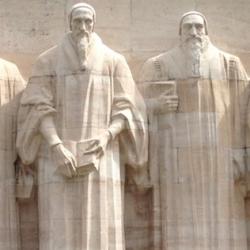At the center of the Sermon on the Mount, Jesus teaches about three duties of Jewish piety – alms, prayer, and fasting. Regarding the last, He says, “when you fast, do not put on a gloomy face as the hypocrites, for they render their faces unrecognizable in order to be seen fasting by men. . . . But you, when you fast, anoint your head, and wash your face, so that you may not be seen fasting by men, but by your Father who is in secret” (Matthew 6:16-18).
Many believe that Jesus focuses on the internal demands of the law. Scribes and Pharisees are concerned with action; Jesus is concerned with attitude. There’s something to that. Jesus sets two motivations in opposition to each other: Some do righteousness to be seen by men, but disciples should do it before the Father.
But Jesus doesn’t go all Kantian; He doesn’t say our actions don’t matter as long as our hearts are in the right place. He commands a different set of practices concerning alms, prayer and fasting. He doesn’t say, “Change your attitude.” He says, “Do these things, but do them differently.”
His instructions are pretty specific. David fasted and prayed for his son to be saved, but when the boy died he rose from the dust, washed and anointed himself, changed his clothes, worshiped and ate. Anointing and washing marked the end of the fast. Jesus blurs the boundaries between the fast and its end; he pushes fast and feast together into a single act. Paradoxically enough, Jesus tells us to fast with all the accouterments of feasting.
What are we to do with that?














